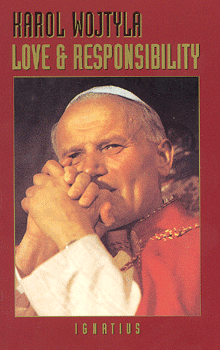I am not married so
this could be a train wreck. Here goes nothing…
Tinder.
Tenderloin.
Tenderize.
Tenderable
Tenderness.
Saint Pope John Paul II
is one of my favorite homies! He has inspired me in more ways than one to
understand more about sharing the truth, authentic
love, chastity, and sex. How could that be the case? A celibate man, who was by
all accounts of the world, out of touch with anything relating to marriage… False.
He was a genius and had many insightful things to say about the way of intimacy.
I want to bring up a
quality that I feel like often gets overlooked, or misunderstood, in terms of
relationships: tenderness. Does
anyone know how to specifically define that word?
The best I could come up with
was the scene from Tangled of
Rapunzel’s mom brushing out all of her flowing, long, golden locks. Meaning: tenderness is simply when someone is gentle with another person.That’s it. I, myself, did not even know how limiting that definition is.
Saint Pope John Paul II
says, “Tenderness is found in the
tendency to make one’s own feelings and mental states of another person.” So, in relationships that are based on love, it is
an unsurprising adjustment to move from the self to focus on the other, feeling
closely involved with the inner life of the beloved.
The action of
tenderness naturally seeks outward expression. In marriage, your
spouse essentially becomes a part of you so much that they are another “I” as
you are united together in the bond. So you want to communicate this sense of
closeness… “I feel the need to let the other “I” know that I take on his/her
feelings and his/her state of mind to heart, to make this other human being
feel that I am sharing it all, that I am feeling what they feel." Hence
we persons show our affection by holding hands, a kiss, drawing someone into
our arms etc.
Even with the lens of
just how beautiful dating and marriage can be, the devil is at play trying to
distort the way the world views both. We all can recognize the ways our culture
has fallen into use of the other, even mutual use. I don’t need to go into
specifics, yet we need to see the effects
of expressing this tenderness too soon.
If tenderness is premature in a relationship, it can stop authentic love
from growing.
Once I dated a man in
which we thought we had a good friendship foundation, only to escalate quickly
towards the physical expressions of tenderness. This actually hurt us more than
anything because it became the center of the relationship. Our relationship
fizzled out fast and today we no longer talk at all. We
created the illusion of love, a love which in reality does not exist. Our
relationship crumbled by the roadblocks we ourselves put up. Often young people
think the way I thought, that this physical expression of tenderness will lead
to authentic love. It is a clever trap set.
 If we are
to grant a man or woman the ‘right to tenderness’ (to show or receive it) we
must also demand a greater sense of responsibility. AKA marriage, not
casual sex in or out of dating relationships. In truth, expressions of
tenderness should always be accompanied by an even greater sense of
responsibility for the other person.
If we are
to grant a man or woman the ‘right to tenderness’ (to show or receive it) we
must also demand a greater sense of responsibility. AKA marriage, not
casual sex in or out of dating relationships. In truth, expressions of
tenderness should always be accompanied by an even greater sense of
responsibility for the other person.
Circling back around to
marriage, tenderness should involve a participation in emotion and commitment
to love. This is what brings the couple to feel the closeness of communication.
Saint Pope John Paul II expands on his earlier definition of tenderness here
saying, “It is the ability to feel with
and for the other person.” It creates a feeling of not being alone, a
feeling that his/her life is equally the content of another very dear person’s
life.
My stepdad and mom,
Richie and Marge, are a great example of this in my life. For the most part,
they do everything together, even grocery shopping is done as a team. It is so
adorable I have to fight the urge to vomit. In the midst of the challenges and joys
of their marriage, I can clearly see the tenderness they express towards one
another. Sometimes things are tense, as with any marriage. I can tell when my
mom is hurt by something, so too does Richie feel the pain. On the same token,
when a joyous occasion burst forth in our lives they both act like IT. IS. THE.
BEST. THING. EVER. They are always leading the family as a team. I think the
tenderness they cultivate in authentically loving the other is wonderful
glue.
Curious
how this show of love, through tenderness, specifically affects women?
Women not
only expect this type of tenderness from their husbands, but they actually have
a special right to it in marriage. Husbands must enter deeply into the emotional
lives of their wives for 3 reasons:
 1. Honestly, a woman’s emotional level is deeper than a man’s so they simply have a greater
need for tenderness. It is also helpful to note that men may never
understand this need fully, similar to how women may not get why men ‘always
think about sex.’ It is not that women need their man to fix everything
magically, we know you aren't superman. We just would like you to listen.
1. Honestly, a woman’s emotional level is deeper than a man’s so they simply have a greater
need for tenderness. It is also helpful to note that men may never
understand this need fully, similar to how women may not get why men ‘always
think about sex.’ It is not that women need their man to fix everything
magically, we know you aren't superman. We just would like you to listen.
2. Woman naturally gives
herself to man.
In a sense, a woman feels the transition from single life to married life in an
acute way. She might notice or feel the break from her family to enter married
life in a deeper way, especially if she has a close-knit family. While there is
excitement in a new life with her husband, she might feel the loss of leaving
all she has ever known in her family’s way of life to create a new life with
her man.
 3. Women have to go through more in life. Ya know… the
important, difficult stuff like pregnancy, childbirth, and possibly leaving a
job. Some women feel very alone in these experiences so have a special need for
tenderness from their husbands as they go through them.
3. Women have to go through more in life. Ya know… the
important, difficult stuff like pregnancy, childbirth, and possibly leaving a
job. Some women feel very alone in these experiences so have a special need for
tenderness from their husbands as they go through them.
Men have a unique
challenge to be tender with their beloved. You are not doing marriage right if
all you do is financially provide for your family, or fix up the house. Men are
called to enter deeply into the emotional lives of their wives. You must begin
to feel with and for her.
Don’t
forget about the art of tenderness between the two of you.
As
Jesus said, “Love one another as I have
loved you.”





















